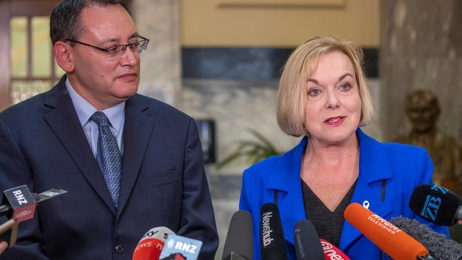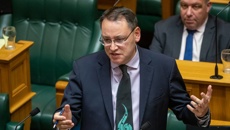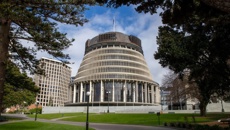If there was no coalition or confidence and supply agreement, that would force a minority Labour government to seek the Greens' support for legislation on a case-by-case basis.
He wouldn't say what the Greens' bottom lines in those talks were, but said a "wealth tax" was a "top priority".
He would also be pushing for co-leader Marama Davidson to be a minister and suggested a Green MP hold the agriculture portfolio.
Shaw said a new Labour-led government would need to be in partnership with the Greens for it to be truly transformational.
"I think, in the next Parliament if Labour and the Greens are able to form a government together, then you will see a truly progressive government for New Zealand."
But Shaw said the Greens would struggle to work with NZ First, adding that the Greens' preference was "clearly" a government without that party.
Shaw renewed his criticism of New Zealand First, saying the party has been "extremely difficult, quite chaotic and not a force for moderation inside the Government," during this term.
If the Greens were in a position to negotiate a post-election deal, Shaw said it would be up to the party's members to give any deal the nod.
/cloudfront-ap-southeast-2.images.arcpublishing.com/nzme/N26NSLHBXRCIXH25HYMEPIZ2OE.jpg)
Last election, after NZ First decided to side with Labour, the Greens membership voted that their party would provide supply and confidence.
All three parties were needed to form a majority.
On current polling, the Greens and Labour could form a coalition government.
This would give the Greens leverage to ask for policies and ministers after October's election.
But Shaw would not say which ministerial portfolio his party wanted.
He did, however, say: "If you look at the policies we have released so far ... those give you an indication of where we want to be able to play a role in government."
He went on to specifically name-check its wealth tax policy as well as its minimum income scheme, clean energy and its upcoming agriculture policy.
Asked if the Greens wealth tax plan was a "bottom line," Shaw said that it was a "top priority".










